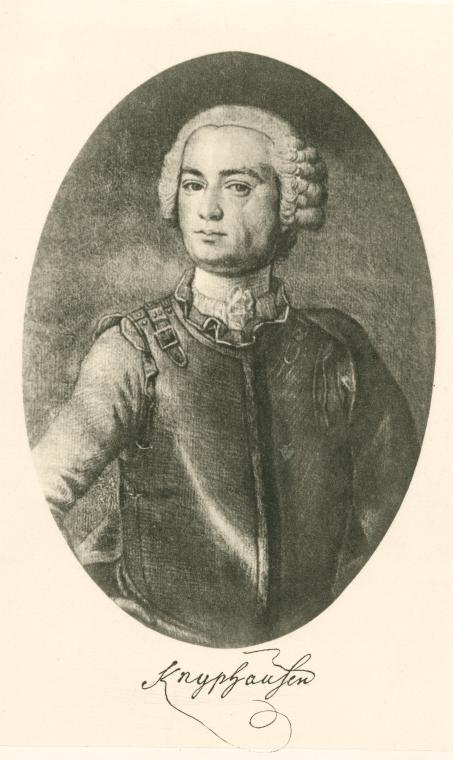Contents

Contents
Quick facts
- Born: 4 November 1716 at Lütetsburg in Hesse-Cassel.
- Wilhelm von Knyphausen was a German general serving under the British during the American Revolutionary War as part of the Hessian forces.
- He played a notable role in several key battles, including the battles of White Plains, Fort Washington, Brandywine, and Monmouth.
- Knyphausen temporarily commanded the British forces in North America in 1780 while General Sir Henry Clinton was in New York City.
- He was known for his disciplined approach and the effective use of Hessian troops, who were renowned for their military skill.
- Despite his opposition to the revolutionaries, Knyphausen earned a reputation for being relatively humane and restrained in his warfare tactics.
- Died: 7 December 1800 at Cassel.
Biography
Wilhelm von Knyphausen, a German General serving under the British, was born in 1716 in the town of Emden in the Electorate of Brunswick-Lüneburg, which is now part of Germany. He was born into a noble family with a long history of military service. As a young man, Knyphausen decided to follow in his family’s footsteps and joined the army.
Knyphausen began his military career in the army of the Electorate of Brunswick-Lüneburg, where he received training in the art of war and gained experience fighting in various conflicts throughout Europe. In 1758, he was promoted to the rank of colonel and was given command of a regiment of infantry.
In 1776, Knyphausen was appointed a general in the British Army and sent to America to fight in the American Revolutionary War. He served under General William Howe and participated in several major battles, including the Battle of Long Island, the Battle of White Plains, and the Battle of Brandywine. Knyphausen also commanded the British forces that captured Fort Washington in New York in 1776.
However, Knyphausen’s most notable achievement in the war was his successful defense of New York City against a French and American attack in 1781. The attack, led by the French Admiral comte de Grasse and General George Washington, was intended to cut off the British supply lines and force their surrender. Knyphausen, however, was able to hold off the attack and prevent the capture of the city.
After the war, Knyphausen returned to Europe and continued to serve in the army of his native Brunswick-Lüneburg. He was eventually promoted to the rank of field marshal and was awarded several honors for his military service, including the Grand Cross of the Order of the Bath from the British government.
Knyphausen died in 1800, at the age of 84. He is remembered as a skilled military commander who played an important role in the American Revolution. His legacy lives on through the various military honors and awards he received for his service, as well as the numerous books and articles written about his military career.


